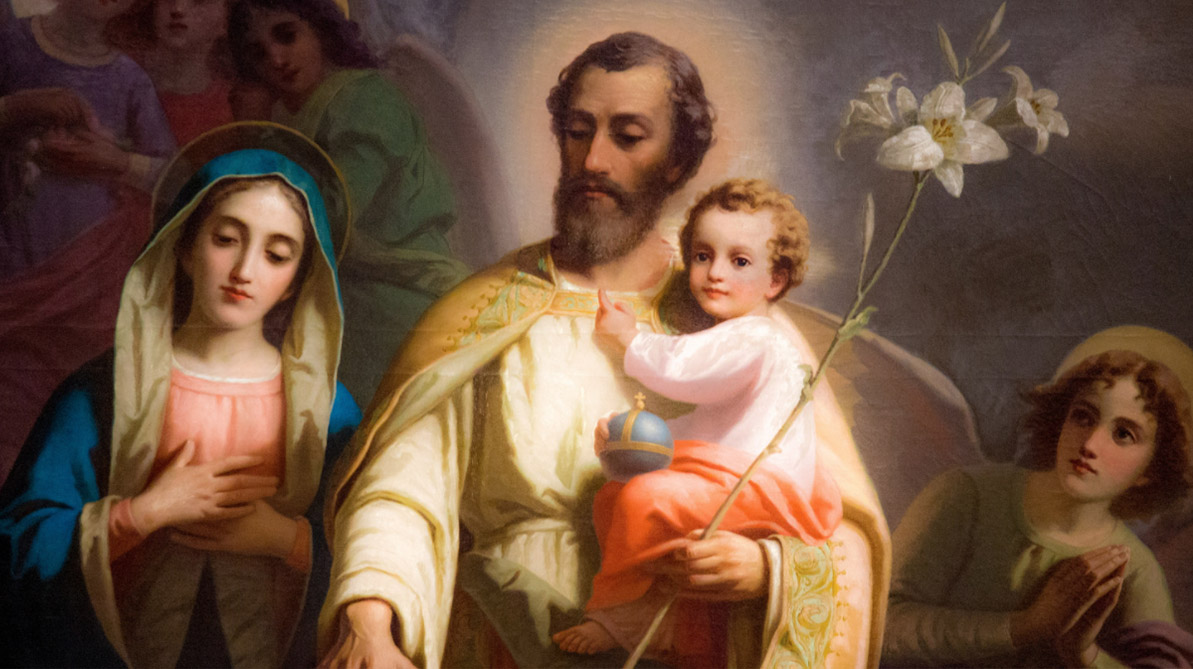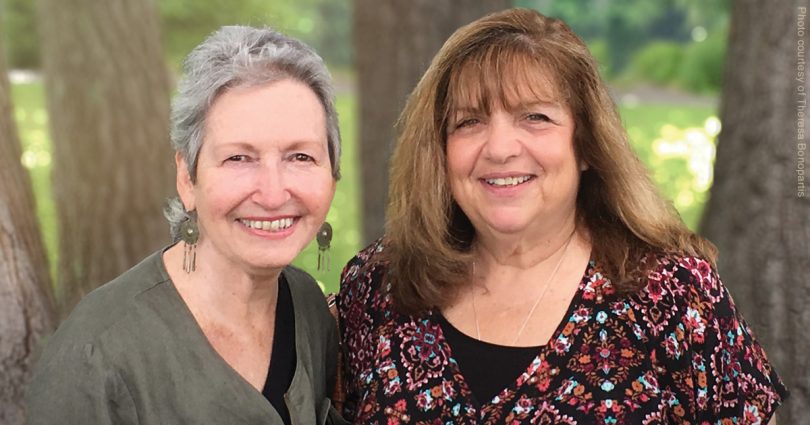By Susan Ciancio
Today is the feast day of St. Hilary of Poitiers. Hilary was born a pagan in the early 4th century. But through his studies and his reading of the Bible, he realized that Catholicism made sense, and he felt called to convert. A few years after he converted, he was made bishop of Poitiers, France. Once bishop, he was forced to contend with one of the most difficult heresies the Church has seen—Arianism.
Arianism says that Jesus was only human, not divine. Because he defended the divinity of Christ, Hilary was exiled by the emperor. While in exile, he wrote On the Trinity—his most important work—about how the Bible proved the existence of the Father, Son, and Holy Spirit. Though he was in exile, Hilary did not stop teaching and preaching the truth of Christ’s divinity. He traveled extensively speaking with great mercy and patience to both bishops and citizens, for he truly believed that they didn’t understand why they were wrong in not believing in Christ’s divinity. He spoke kindly. He spoke gently, always upholding and recognizing the dignity of each person. Eventually, he was able to help people understand that Christ is truly divine. When the emperor died, Hilary was allowed to return to his parish and eventually saw the demise of Arianism. His writings and his teachings led to his becoming a doctor of the Church.
We can learn a lot about building the culture of life from St. Hilary. Many of us have been in situations in which someone did not believe us when we told the truth. We see this frequently when we try to articulate what the Church teaches about the sanctity of life and the value of preborn babies, the disabled, or the elderly. Our secular world tells us that we should not value the preborn as much as the born. It tells us that abortion is a “right” and that we’re wasting our time fighting for something the Supreme Court has already decided. It tells us that people nearing the end of life don’t have the same value as someone much younger or healthier. It tells us that, because someone might be nearing death, it doesn’t matter if he ends his life early through euthanasia because “he was just going to die anyway.”
To all these people, we must respond with patience and charity as we stand up and defend all human beings. It’s likely that many have never been taught the truth about the inherent goodness in everyone. Indeed, many people erroneously see life as having to have certain qualifications to be considered “good” because that’s what they see on television and social media. But those images are mere snapshots of life and in no way represent the true meaning of being a child of God. We know that all life is good because God, who is perfect, gave it to us. And we can never throw His gift away.
That doesn’t mean life is always easy or fun. It can be downright difficult at times. But God walks with us, even when we don’t feel Him there.
And, when people mock us or tell us we’re being shortsighted, silly, or focusing on the “wrong” topic, we must respond with charity and a cool head, like Hilary.
How do we do this in a world so fraught with anger and hatred?
Like Hilary, we summon the courage to teach—through our written word, our spoken word, and our examples—that each and every person has dignity and value. We make every effort to teach these values to our children, so they can grow to be evangelizers of Christ. And we teach and live these values wherever we go and whatever we do.
This is a tall order—and so hard! It’s easy to teach our kids because they listen to and respect us. But it’s much harder to defend our beliefs to friends, family, acquaintances, or coworkers. It’s hard because everyone has the innate desire to be liked, and many people fear confrontation. So, out of the notion that we should just “keep the peace,” we often also keep our mouths closed.
The problem with this is that people on the other side aren’t keeping their mouths closed. And so the world is inundated with anti-Catholic (or anti-faith-related) opinions, anti-life sentiments, people who are literally shouting that there’s nothing wrong with killing a preborn baby (Shout Your Abortion), and people who praise others for choosing “death with dignity.”
When we take the path of silence, we may be taking the easy way out for us, but we are not taking the easy way out for our families or for society. We are actually doing harm.
We will never effect change if we sit back and watch things happen. We must make change happen. And we must do this joyfully and peacefully. For, as Colossians teaches: “Whatever you do, do from the heart, as for the Lord and not for others.”
Like Hilary, we must choose to peacefully fight against those who ridicule and mock our beliefs, and we do so to glorify God. There is no better reason.
The Culture of Life Studies Program has some awesome lessons that will help you teach your children and teens about the sanctity of all human beings. Here are a few of our favorites:
Caring for the Least of These (This downloadable picture book lesson shows K-2 students that every person has a duty to care for the weakest and most vulnerable people around us.)
Serving the Poorest of the Poor: St. Teresa of Calcutta (Through the example of Mother Teresa, this lesson for 5th grade and up assists you in explaining how to live out the Corporal Works of Mercy.)
When Heroes Become Saints: St. Damien de Veuster of Molokai (This lesson for 5th grade and older tells the story of St. Damien de Veuster of Molokai, a heroic priest who volunteered to serve the lepers on the desolate peninsula of Molokai in Hawaii. It challenges students to think about the outcasts whom they encounter in their own lives and how they can follow the example of St. Damien by reaching out to them.)
Without Mercy: An Introduction to Euthanasia, Assisted Suicide, and Other Threats to the Medically Vulnerable (This lesson for middle school and older examines the complex topics of euthanasia and assisted suicide and teaches students the reality behind what the culture of death advocates regarding end-of-life issues.)
Life Is Precious (This 4-week lesson instructs k-2 children about the truth of human development while still respecting their innocence.)
Dr. Jerome Lejeune and Trisomy 21 (This lesson for middle school and older explores the life of the man who discovered that an extra chromosome is the cause of Down syndrome.)
All Shapes and Sizes (This 4-week unit study for kindergarten and older helps students understand that the value of every human being exists because we are all made in the image and likeness of God.)
Image courtesy of Dimitri Conejo Sanz.


